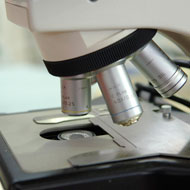
Discovery paves the way for more effective treatment
New research coordinated by the RVC has revealed how some cancer cells are able to resist chemotherapy.
The study, published in Cell Reports, focussed on a mitochondrial protein called ATPase Inhibitory Factor 1 (IF1). Expressed in various types of human and animal cancers, the protein curbs cell death, enhances tumour growth and strengthens chemoresistance.
Previous research shows that IF1 prevents the consumption of ATP from mitochondria, which are the major cellular source of energy.
The study found that by preventing the consumption of ATP, IF1 fuels a mechanism of resistance to chemotherapy. This is exploited by cancer cells to evade a chemically induced demise, the RVC explains.
This discovery will now allow scientists to work on how to target these cancer cells for more effective and tailored treatment for patients.
“This study has successfully established the hierarchy between mitochondrial bio-energetics and structure in cancer cells highlighting ATP as an intracellular oncometabolite,” commented Dr Michelangelo Campanella of the RVC.
“We are confident to have, in this way, unveiled a mechanism of mitochondrial structure preservation through the exploitation of retained energy that tangibly increments our understanding of mitochondria orchestrated strategies of resistance to therapy.”
The research was a collaboration between the RVC, Kyoto Sangyo University, Japan, and the University of Rome TorVergata in Italy.



 RCVS Knowledge has welcomed Professor Peter Cockcroft as editor-in-chief for Veterinary Evidence.
RCVS Knowledge has welcomed Professor Peter Cockcroft as editor-in-chief for Veterinary Evidence.